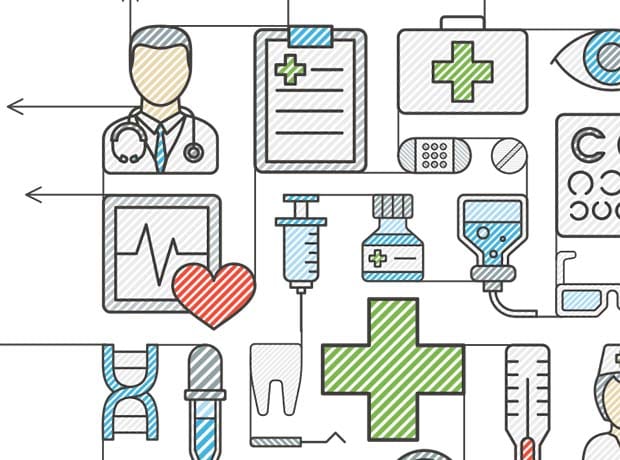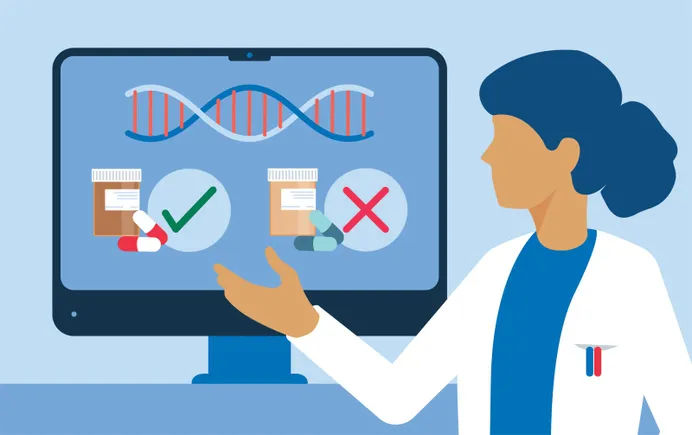Greetings, BioPharma Enthusiasts! 👋
Welcome to another edition of BioPharmaPulse, where we delve into the latest innovations shaping the biopharmaceutical landscape. It's an exciting time in our industry, with groundbreaking developments that promise to transform patient care and redefine therapeutic possibilities.
What's in this issue:
- 🧬 Discover a new therapeutic target in Alzheimer's disease research
- 🏥 Uncover regulatory changes impacting UK clinical trials
- 💡 Learn about the critical role of evidence-based databases in pharmacogenomics
- 🔬 Explore how AI is mining hidden gems in unstructured EMR data
Quote of the Day 🌟
"Innovation is the unrelenting drive to break the status quo and develop anew where few have dared to go." — Steven Jeffes
Latest Developments 📰
🧠 Potential Alzheimer's Disease Therapeutic Target Identified in Brain Immune Cells (2-minute read)

Rundown: Researchers at Massachusetts General Hospital have identified Tim-3, an immune checkpoint molecule, as a promising therapeutic target for Alzheimer's disease. Previously linked to late-onset Alzheimer's, Tim-3’s role in microglia—the brain's resident immune cells—was unveiled in this groundbreaking study published in Nature. The findings open new avenues for therapeutic interventions aimed at modulating immune responses in the brain.
Key Points:
- 🧩 Tim-3's Role: Identified as crucial in microglial function related to Alzheimer's.
- 🧪 Novel Target: Offers a new pathway for developing Alzheimer's therapies.
- 📚 Published in Nature: Underscores the significance of the research.
- 🌐 Impact on Late-Onset Alzheimer's: Potentially benefits a large patient population.
Why It Matters: This discovery sheds light on the complex immune mechanisms underpinning Alzheimer's disease. By targeting Tim-3 in microglia, there is potential to develop treatments that could slow or alter the course of the disease, offering hope to millions affected worldwide.
🏥 UK Clinical Trials Regulations Signed into Law (2-minute read)

Rundown: The UK has officially enacted new clinical trials regulations aimed at streamlining research processes and fostering innovation. These laws are designed to create a more efficient regulatory environment, encouraging the development of cutting-edge therapies and maintaining the UK's position as a global leader in clinical research.
Key Points:
- 📝 Regulatory Overhaul: Simplifies and accelerates clinical trial approvals.
- 🌍 Global Competitiveness: Positions the UK as a favorable location for research.
- 💼 Industry Collaboration: Involvement of stakeholders to shape practical regulations.
- 🚀 Innovation Boost: Facilitates quicker patient access to new treatments.
Why It Matters: These regulatory changes could significantly reduce the time it takes for new therapies to reach patients. By fostering a more conducive environment for clinical trials, the UK is paving the way for rapid advancements in biopharmaceutical research and development.
🧬 The Critical Role of Evidence-Based Databases in Pharmacogenomics (2-minute read)

Rundown: This article highlights how QIAGEN's PGx Portal is transforming pharmacogenomics by providing faster, more accurate insights. The importance of evidence-based databases is emphasized in ensuring accuracy, consistency, and relevance in the rapidly evolving field of pharmacogenomics.
Key Points:
- 🔍 Enhanced Accuracy: Reliable databases improve genetic insight precision.
- ⏱️ Faster Insights: Accelerates the interpretation of pharmacogenomic data.
- 🌐 Global Impact: Facilitates better patient outcomes worldwide.
- 🧠 Data Integration: Combines vast amounts of genetic data for comprehensive analysis.
Why It Matters: As personalized medicine becomes increasingly prevalent, having access to robust, evidence-based databases is crucial. They ensure that healthcare providers can make informed decisions based on the most current and accurate genetic information, ultimately improving patient care.
Question of the Day ❓
🤔 How do you see the role of AI evolving in biopharmaceutical research?
- A. Revolutionizing data analysis and drug discovery
- B. Enhancing patient care through personalized medicine
- C. Streamlining clinical trials and regulatory processes
Trending Now 🔥
🧠 Mining the Hidden Gems in Unstructured EMR Data
- Summary: Artificial Intelligence is unlocking the rich details hidden in unstructured clinical data, making them available for analysis. This advancement allows for a deeper understanding of patient information, leading to improved outcomes and more efficient research processes.
💡 Translating FDA Guidance into Action: Regulatory Considerations for Orphan Drug Developers
- Summary: The article explores how recent FDA guidance is shaping the future of rare disease drug development. It provides insights into navigating regulatory landscapes and emphasizes the importance of strategic planning for orphan drug developers.
🧬 Verve Therapeutics Receives U.S. FDA Fast Track Designation for VERVE-102
- Summary: Verve Therapeutics announced that the FDA has granted Fast Track designation for VERVE-102, an in vivo base editing medicine targeting PCSK9, advancing the development of innovative treatments for cardiovascular disease.
Industry Insight 🏭
🧐 The Importance of Evidence-Based Databases in Pharmacogenomics
Understanding the genetic factors that influence drug response is crucial in developing effective treatments. Evidence-based databases like QIAGEN's PGx Portal play a pivotal role in aggregating and analyzing genetic data. By harnessing these resources, researchers and clinicians can gain faster, more accurate insights into pharmacogenomics.
By integrating comprehensive data, we can move towards more personalized medicine, tailoring treatments to individual genetic profiles and improving patient outcomes.
Quick Hits ⚡
🧬 New Test Prototype for Monitoring MGUS Patients Funded (1-minute read)
- Summary: Birmingham researchers have received funding to develop a prototype test for more efficient monitoring of patients with Monoclonal Gammopathy of Undetermined Significance (MGUS), potentially improving early detection and management.
🏥 Tech Modernization at Community Health Centers in Limbo After Federal Workforce Cuts (1-minute read)
- Summary: Layoffs at HHS have impacted a technology modernization program intended to enhance community health centers' effectiveness, raising concerns about future patient care and data management.
🚭 Closure of CDC Hepatitis Lab Imperils U.S. Outbreak Response, Prevention (1-minute read)
- Summary: The shutdown of a leading CDC hepatitis laboratory could hinder outbreak response and prevention efforts, potentially affecting millions of Americans living with hepatitis B and C.
💊 Opinion: 'Most-Favored Nation' Drug Pricing Has Three Significant Problems (1-minute read)
- Summary: An opinion piece discussing the challenges associated with implementing 'Most-Favored Nation' pricing policies for drugs in the U.S., highlighting potential implications for the pharmaceutical industry.
🧬 Opinion: Biotech Investors Should Stop Expecting CRISPR Science to Make Big Leaps (1-minute read)
- Summary: The article urges biotech investors to adjust their expectations regarding the pace of progress in CRISPR science, emphasizing the importance of understanding the technology's realistic capabilities.
Wrap Up
Thank you for joining us on this journey through the latest in biopharmaceutical innovation. The advances we explore today pave the way for tomorrow's breakthroughs, and your enthusiasm fuels the pulse of our industry. Stay curious, stay informed, and let's continue to push the boundaries of what's possible together.
Warm regards,
Elliot Reeves
BioPharmaPulse
😊 How did you like today's email?
- 😀 Loved it
- 🙂 It was OK
- 😕 Could be better
